How Early Warnings For All Helps To Reduce The Vulnerability of Maldives
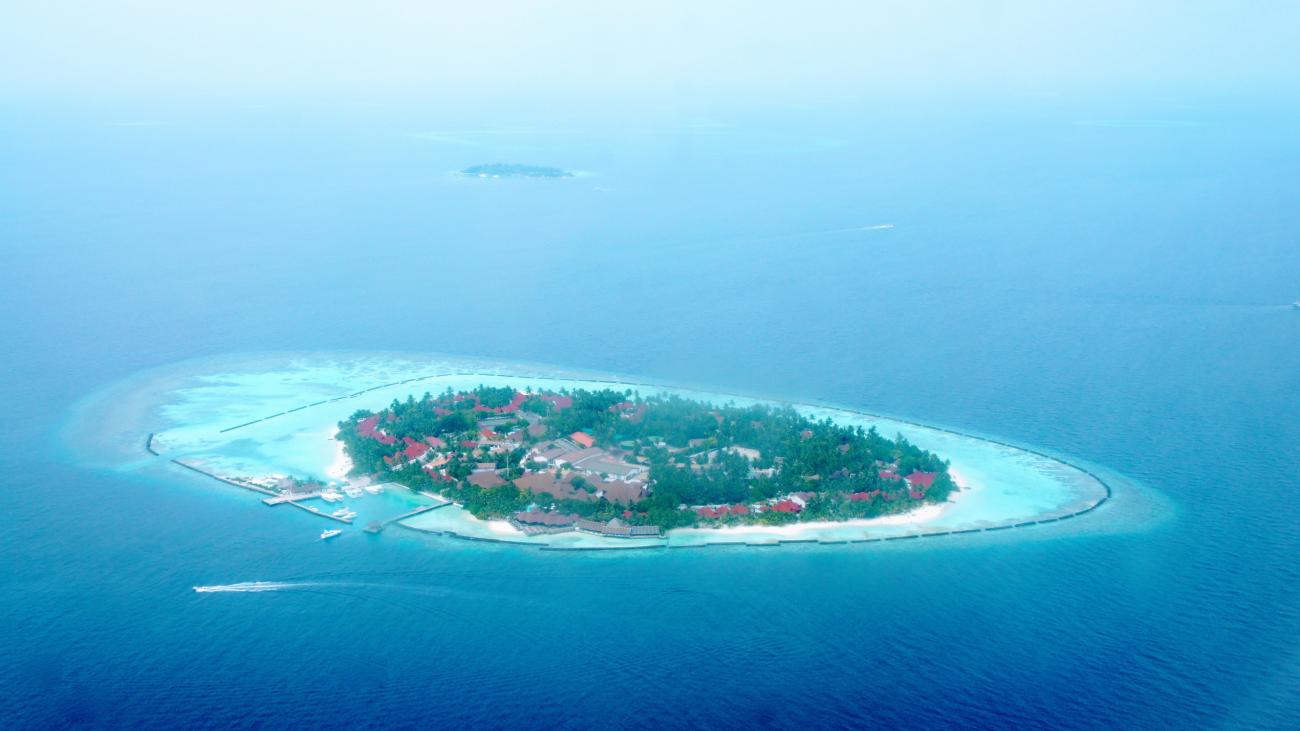
Key Takeaways from the First National Consultation on Early Warnings for All in Maldives
MALDIVES is a low-lying island nation comprised of estimated 1,192 islands separated in 26 natural atolls, of which 187 islands are inhabited, spread across 90,000 square kilometers in the Indian Ocean. The country and its people face every day the constant risk of climate change due to its unique geography. Maldives enjoys a warm and humid tropical monsoon climate with an annual mean temperature of 28°C. The islands experience little variation in temperatures throughout the year, with two distinct seasons. The southwest monsoon (wet season) normally extends from mid-May to November. The northeast monsoon (dry season) extends from January to March. The months of December and April are considered the monsoon transitional periods.
Among many other environmental risks, the Maldives is vulnerable to growing loss and damage and more frequent and severe storm surges, heatwaves, and extreme weather hazards, with sea level rise a constant threat. Maldives experiences frequent seasonal events with low intensity but high frequency, including monsoonal flooding, coastal erosion, saltwater intrusion, and flooding caused by intense sea surges due to rising sea levels. Given that 75% of the Maldives’ land area is situated less than one meter above the average sea level, even a slight increase in sea level poses an exceptionally significant threat.

Climate change can exacerbate these weather events, and Maldives is already experiencing stronger storm surges, increased wind speeds, and heavier rainfall, resulting in flooding, property damage, and loss of lives. Global warming that accelerates rising sea levels can lead to coastal erosion, inundation of low-lying areas, and saltwater intrusion into freshwater sources, impacting agriculture, infrastructure, and human settlements. Of the already limited land for agriculture, an estimated 13% of this is located below 1 meter (above mean sea level) and under threat of impacts related to sea level rise.
Small islands and atolls often have limited land area and concentrated populations, making them more susceptible to climate-driven impacts. The availability of arable land, freshwater resources, and suitable sites for infrastructure development are scarce, and with climate change exacerbating these challenges, and with an already narrow buffer within which to navigate, adaptation options are few and far between.
Maldives’ dependence on tourism and fisheries means that the nation has a narrow economic base. Fisheries itself remains one of the biggest sources of employment, and ‘fish and fish products’ account for almost 98% of Maldives exports. Climate change impacts such as coral reef degradation, loss of biodiversity, and extreme weather events can disrupt these industries, leading to economic losses, unemployment, and reduced livelihood options for local communities.
The capital city Malé, where one-third of the country’s population resides, is one of the most densely populated cities in the world. This concentration of people, infrastructure, and economic activities in limited space exacerbates the vulnerability to climate change impacts. UN-ESCAP estimated that up to 53 per cent of population is likely to be exposed to intensified risk of rainwater related flooding by 2060, under a climate change scenario; the at-risk population are concentrated in the capital city. Displacement and relocation of communities due to sea-level rise or extreme weather events becomes more challenging when there are limited alternative areas for resettlement, especially since other islands and atolls pose the same geographical vulnerability with even less established infrastructure to accommodate climate-related displacements.
In 2023, the UN Secretary-General, Antonio Guterres, announced Early Warnings for All (EW4All) as a call to action to ensure every person on Earth is protected by multi-hazard early warning systems by 2027. On 4 July, a national consultation and launch of Early Warnings for All (EW4All) was convened in the Maldives, and hosted by the Ministry of Environment, Climate Change and Technology, in cooperation with the United Nations Country Team in the Maldives, led by the UN Resident Coordinator with support from UNDRR and WMO as global co-leads for EW4All.
The EW4All national consultation and launch was presided by H.E. Ms. Aminath Shauna, Minister of Environment, Climate Change and Technology (MoECCT), and co-chaired by Ms. Khadeeja Naseem, State Minister and the UN Resident Coordinator, Catherine Haswell. Other national leads of the four EW4ALL Pillars included: Mr. Mohamed Shareef, State Minister, National Centre for Information Technology (NCIT); Mr. Hisan Hassan, Chief Executive, National Disaster Management Authority (NDMA); Mr. Abdulla Wahid, Director General of the Maldives Meteorological Service (MMS); and Ms. Fathimath Himya, Secretary General of the Maldives Red Crescent (MRC).
Figure 1. Sea level anomaly under baseline and climate change scenario for Maldives (left) and Agricultural areas in Maldives exposed to 1 m sea level rise under climate change scenario (Right)
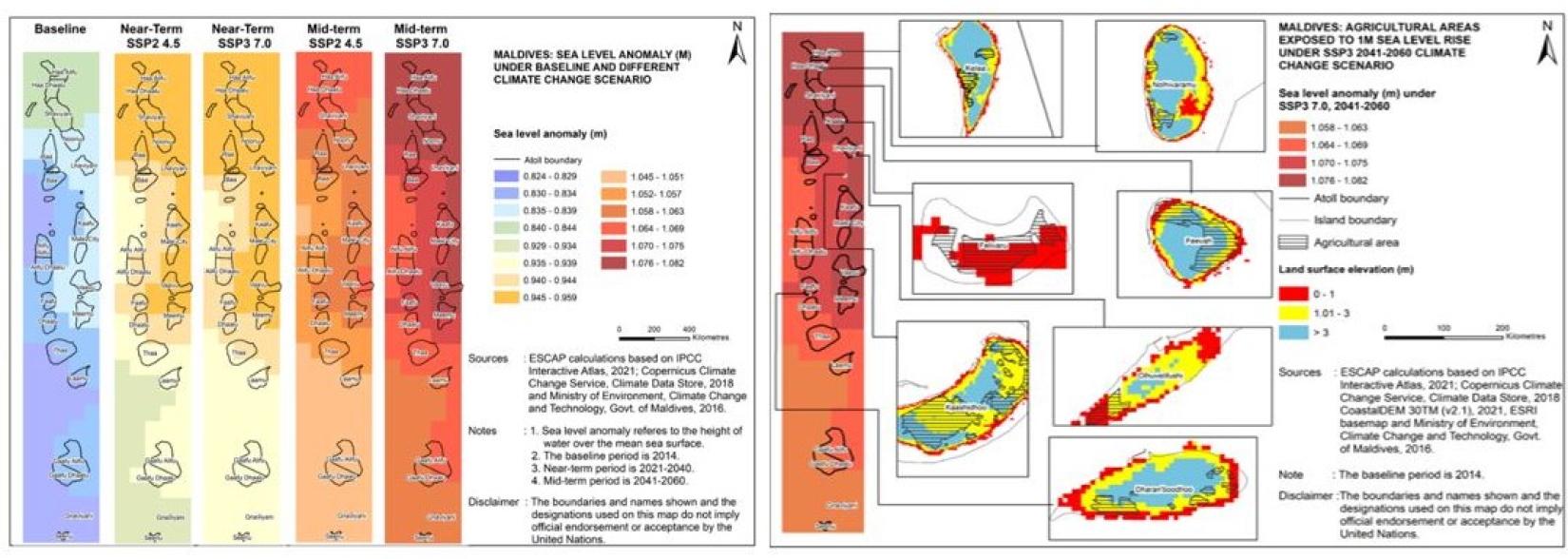
Building on the existing regulation and operationalization of EWS in the Maldives, the Government of Maldives, with the support of the UN under the leadership of the UN Resident Coordinator for the Maldives, has quickly convened technical expertise from the four pillar leads in the region, in order to boost political momentum for and achievement of the EW4All Action Plan by 2027. It builds on the decades of efforts in the disaster risk reduction and management space by the UNDP and UNDRR, with additional expertise provided by UNESCAP, UNEP and GEO.
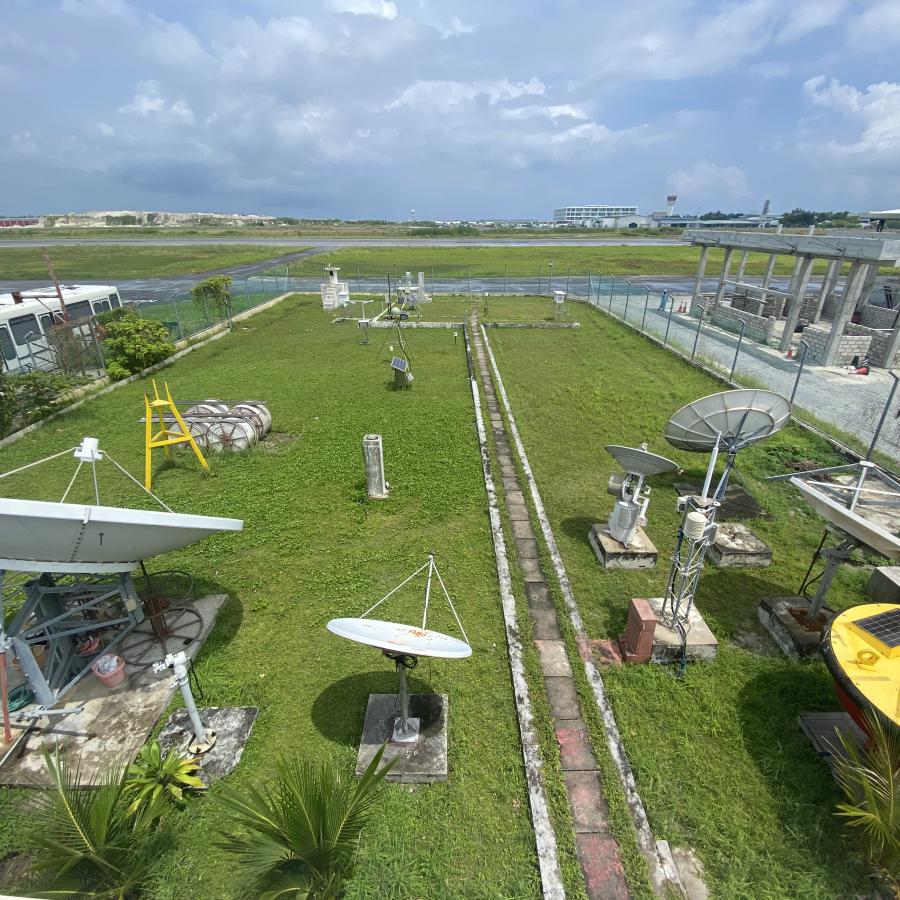
THE FOUR PILLARS OF EW4ALL ARE LED AS FOLLOWS
- PILLAR 1: DISASTER RISK KNOWLEDGE (National Disaster Management Authority, with support from UN Office for Disaster Risk Reduction )
- PILLAR 2: OBSERVATIONS AND FORECASTING (Maldives Meteorological Service, with support from World Meteorological Organization )
- PILLAR 3: WARNING DISSEMINATION AND COMMUNICATION (National Centre for Information Technology, with support from the International Telecommunications Union)
- PILLAR 4: PREPAREDNESS AND RESPONSE (Maldives Red Crescent, with support from the International Federation of the Red Cross and Crescent Societies)
Women’s rates of literacy can be lower than men’s, especially among the elderly. Consequently, women are often unaware of information regarding vision loss, or other eye health conditions and can be less likely to know about the possibility of treatment or where to go to receive it. Research conducted in South India suggests literacy levels among individuals with a vision impairment are predictors of receiving cataract surgery. Lack of education can also lead women to believe that they have been cursed with blindness or that they simply have bad luck. When they feel they lack agency or control in their daily life and health-seeking, women often de-prioritise their own eye health.
In the first national consultation of EW4ALL in the Asia Pacific region, and the first SIDS globally, the UN Resident Coordinator to the Maldives recalled the fundamental role of multi-hazard early warning systems in reducing loss of lives and livelihoods of Maldivians across the 187 local islands, and as host to foreigners in 170 resort islands. Ms. Haswell noted the significant progress made in the country, and the determination of the respective Pillar leads to collaborate in reaching every person in the Maldives before the end of 2027.
H.E Aminath Shauna, Minister of Environment, Climate Change and Technology highlighted early warning as a key piece for adaptation strategy:
“Maldives is the first Asian country and first SIDS to initiate the UN Secretary General’s Early Warnings For All program. As one of the most vulnerable countries to the climate crisis, it is critical that we build our national capacity in early warning and preparedness, and this is a key piece of our adaptation strategy. Early warning systems are cost-effective, saving lives, reducing economic losses, and providing a nearly tenfold return on investment. Our islands are numerous, as are our needs, but we are hopeful that through this program, we can drive the support and action needed to ensure every Maldivian is covered by multi-hazard early warning systems.”
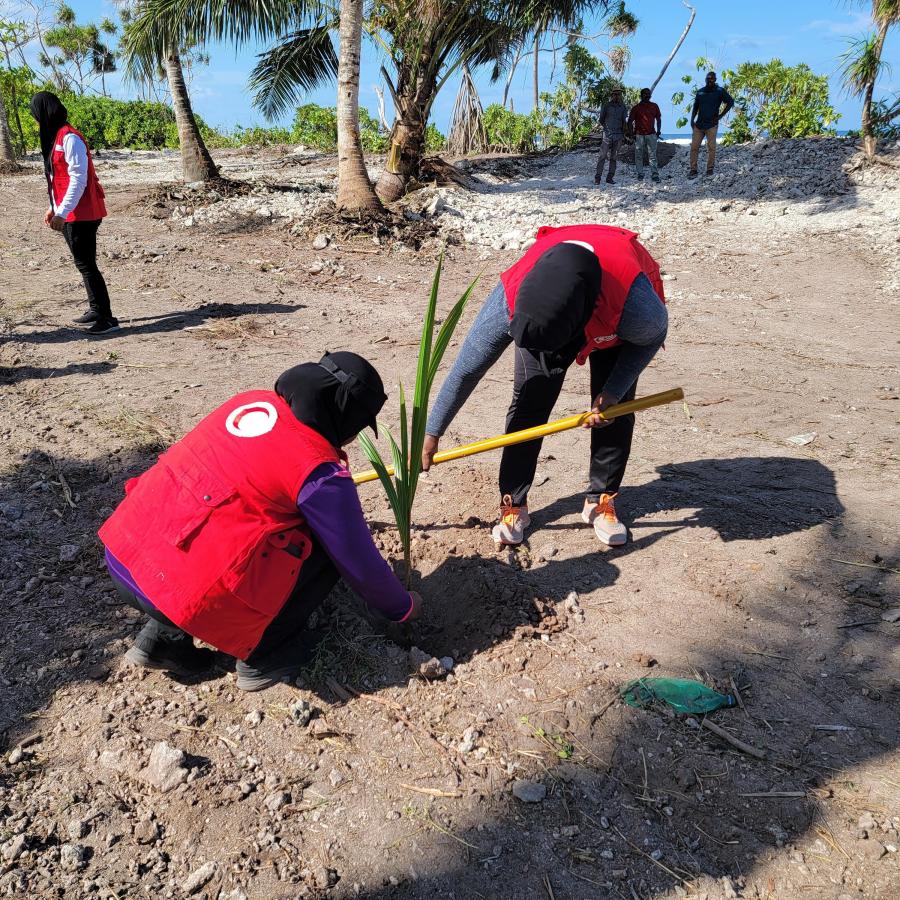
As a call to scale up national action, EW4All can play a crucial role in accelerating investment to address the vulnerability of the Maldives to climate change by improving early warning systems and enhancing resilience by:
Improved risk data collection and monitoring: Promoting open access and sharing of data and analyses on hazards, exposure and vulnerabilities to climate-related risks, and enhancing meteorological and hydrological monitoring systems in the Maldives. This includes installing weather stations, tide gauges, and river flow sensors to collect essential data on climate parameters. Accurate and timely data is crucial for detecting and predicting climate-related hazards and issuing early warnings to the most-at-risk can take early and anticipatory action.
Technological advancements: Facilitating the adoption and implementation of advanced technologies, such as remote sensing, satellite imagery, and modelling tools. These technologies can improve the accuracy and lead time of early warnings by providing real-time data, mapping hazard patterns, and predicting the intensity and trajectory of climate-related events.
Strengthening communication infrastructure: Supporting the development and enhancement of communication infrastructure in Maldives, including radio networks, mobile networks, and internet connectivity. Reliable communication channels are essential for disseminating early warning messages to communities, ensuring that the information reaches the most vulnerable populations in a timely manner.
Public awareness, education and enhanced preparedness and responses: Expanding public awareness campaigns and educational programs to educate the population of Maldives about climate change risks, the importance of early warnings, and appropriate response actions. Increased awareness and knowledge will enable individuals and communities’ preparedness and response plans.
Capacity building and training: Delivering demand-driven technical assistance and capacity-building programs to strengthen the skills and knowledge of government agencies, meteorological departments, disaster management organizations, and local communities. This includes training in risk assessment, loss and damage accounting, data analysis, hazard assessment, impact-based forecasting, early warning dissemination, and response planning. Building local capacity ensures effective management and sustainability of early warning systems.
EW4All underscores the importance of scaling up collaboration and knowledge sharing among different stakeholders, including government agencies, international organizations, research institutions, and local communities. Sharing best practices, lessons learned, and experiences from other countries facing similar challenges can help Maldives strengthen its early warning systems and adopt innovative approaches.
BUILDING ON GAPS AND NEEDS IDENTIFIED IN DAY 1, The second day of the consultation focused on concretising the national priorities that could be addressed under a new Green Climate Fund (GCF) proposal.
Prior to the launch of EW4All, UN Environment Programme (UNEP) has been supporting the Maldives to develop a GCF concept note “Toward Risk-Aware and Climate-resilienT communities (TRACT) – Strengthening climate services and impact-based multi-hazard early warning in Maldives”.
With the recent go-ahead from the GCF Climate Investment Committee to develop the concept into a full proposal, the timing is opportune to ensure that the TRACT project provides a tangible means to translate the talk into action.
The TRACT project will ensure holistic, whole-value-chain approach to establishing a people-centred, impact-based multi-hazard early warning system in Maldives. It will concurrently address capacity development needs across the four pillars of EW4All, which is essential to overcome the ‘last mile’ barriers that impede the full use and benefit of early warning systems (EWS).
Maldives is also in the first batch of Systematic Observations Financing Facility (SOFF) programming countries, with UNEP as its Implementing Entity. The SOFF is a key delivery mechanism of the EW4All initiative, providing technical and financial assistance to close gaps in essential weather and climate observations. The proposed TRACT project will leverage SOFF investments to reinforce capacity development efforts across the entire EWS value chain.
Maldives is also benefitting from support from the ESCAP Trust Fund for Tsunami Disaster and Climate Preparedness, in particular through support from the Regional Integrated Multi-Hazard Early Warning System for Africa and Asia (RIMES).
For more information please contact:
- UN Resident Coordinator’s Office – Ms. Huda Adam (huda.adam@un.org)
- UNDRR – Mr. Andrew Spezowka (andrew.spezowka@un.org)
- WMO – Muhibuddin Usamah (musamah@wmo.int)
- UNEP – Mr. Jochem Zoetelief (jochem.zoetelief@un.org)
- ESCAP – Ms. Temily Isabella Baker (temily.baker@un.org)
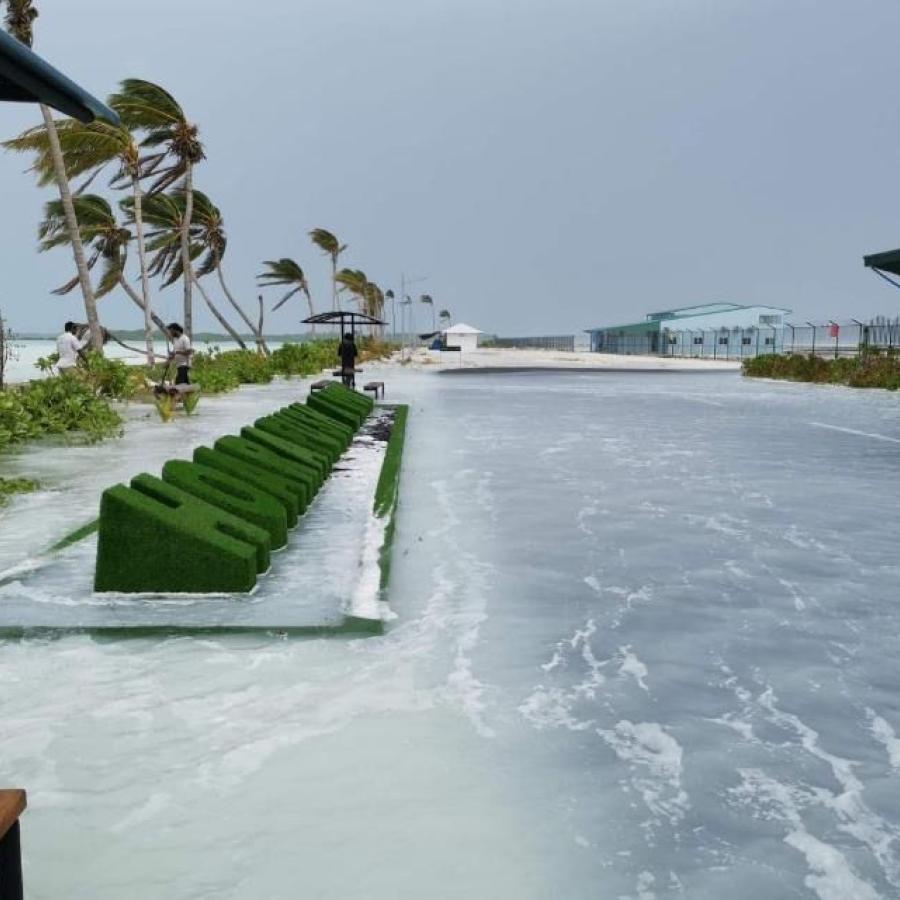
ENDNOTES



